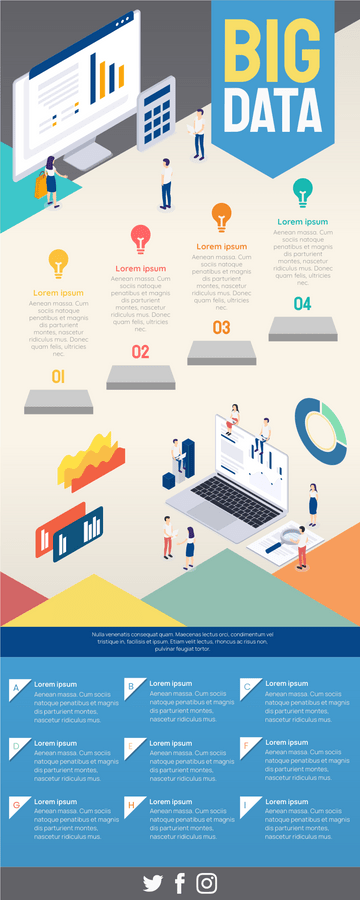Big Data
In a nutshell, big data is a larger, more complex set of data, especially from a new data source, and yet the new sources of data are growing exponentially with time. These data sets are so large that traditional data-processing system cannot store, process and manage them efficiently. But this massive amount of data can be used to solve previously unsolvable business problems.
There are many different use cases of big data, for examples:
- Discovering buying patterns for customers.
- Personalized advertising and relevant product recommendations
- Personal preferences for content suggestions for a search engine
- Health conditions tracking through data from wearables.
- Live mapping of roads for autonomous vehicles.
- Predictive ordering of inventories.
Some Facts About Big Data
- People are generating 2.5 quintillion bytes of data each day. Nearly 90% of all data has been created in the last two years. Around one terabyte of new trading data is generated every day by the New York Stock Exchange.
- The figures reveal that every day, 500+ terabytes of new data are absorbed into the databases of the Facebook social networking platform.
- Google alone processes on average over 40 thousand search queries per second, making it over 3.5 billion in a single day.
- Today’s data centers occupy an area of land equal in size to almost 6,000 football fields.

This post is also available in Deutsche, Español, فارسی, Français, English, Bahasa Indonesia, 日本語, Polski, Portuguese, Ру́сский, Việt Nam, 简体中文 and 繁體中文.

















